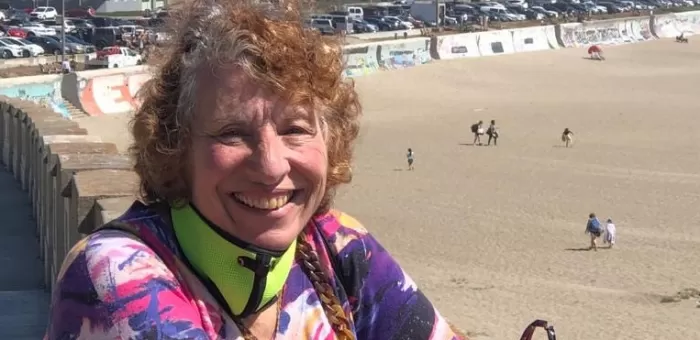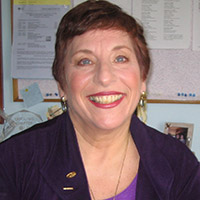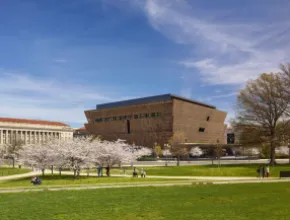Having been a meeting planner for nearly 40 years, I’ve been on my share of site inspections. However, I haven’t done one for quite some time. Not because of the coronavirus pandemic, but because I’m trying my best to be retired!
Well, the cosmos seems to be conspiring against me, because even though I’m retired from full-time planning, I still like to keep active by volunteering or to put a few bucks in my pocket by doing piecemeal work, such as recently for the U.S. Census Bureau as an enumerator for their big count every 10 years.
When they discovered I was a meeting planning veteran, they requested I make a site inspection of Temple Emanu-El in San Francisco for a series of two two-hour training sessions to be held from 8 a.m.-5 p.m. for a revolving group of participants.
I was given the contact’s name, telephone number and email address with a confirmation for an onsite visit the following morning. When I called to confirm the appointment with Svetlana Leykin, director of special events for the temple, we developed an immediate connection when we discovered that she came from Gomel—the same city in Belarus where my mother was born.
(Okay, that’s beside the point, but interesting nonetheless!)
[Related: Planner Best Practices for Working With CVBs/DMOs]
I inquired what specific information she needed from me and what entrance I should use at the synagogue, and that a colleague would be accompanying me, so I learned I had to provide her name in advance for security reasons, which unfortunately is all too common at synagogues.
Svetlana was joined by Penny Mika, director of operations and office administration, and Fabian Vazquez, building superintendent, who sat on chairs spread six feet apart as we reviewed meeting requirements and special COVID-19 arrangements for the training session. I asked if there was any other information that I should be aware of that I may not have asked.
Svetlana, Penny and Fabian were extremely professional and knowledgeable, and we all realized that these sessions are being planned under the very unique circumstances of COVID-19, and we needed to develop new policies and procedures.
To develop the following list of requirements, I collaborated with my daughter, Allison Wallsh-Levy, who is an occupancy planner for a commercial real estate firm.
A COVID-19 Meeting Safety Checklist
As you prepare for your site inspection and compile your checklist, I recommend the following be added to customary site inspection checklists:
1. Develop a relationship with your contact in advance of your visit, particularly since facilities are likely to be short staffed and under additional stress.
2. Inquire about which entrance door to facility should be used.
3. Check out security arrangements:
- Identification such as driver’s license, passport, social security card.
- Health status can be determined using a temperature/health consent form.
- Disclaimer about suing in case of contracting COVID-19.
- Timing of participant arrivals to avoid congestion in advance of sessions, particularly when multiple shifts of sessions are held.
- Prepare sanitizer station with masks/gloves/hand sanitizer.
- Prepare registration area, possibly with plexiglass, and sufficient spacing to protect staff and attendees. Include containers with clean writing implements and used implements for sign-in sheets. Include a trash container.
- Create signage using red arrows on Velcro and mark floors to indicate six-foot spacing and for directional flow.
- Get floor plans to lay out tables and chairs for appropriate spacing and revised room capacity. Only one person should be placed at a six-foot table.
- As the room is set, be certain that the layout meets the requirements of the fire marshal.
- Consider using furniture that can be wiped down.
- Plan an agenda that allows sufficient time for cleaning tables and chairs in between sessions.
- Check out the sound system. Normally a microphone is not necessary for less than 50 people, however, when speaking through a mask, amplification may be necessary.
- Check out internet connections.
- Check location of electrical outlets and access to them by participants. Power strips could be helpful to avoid close contact.
- Don’t forget to follow Americans with Disability (ADA) requirements.
- Food and beverage should be limited to bottled water and boxed meals.
- Restroom breaks should be staggered, and restrooms should be cleaned while the group is in session. In the event that there are multiple stalls, such as three three-women stalls at Temple Emanu-El, the middle stall should be closed to avoid close contact.
- Inquire about any issues that you should be aware of at the facility. For example, Temple Emanu-El requires a list of attendees 12 hours in advance, and that any meals brought in must meet Kashruth (Kosher) requirements.
Check Out More Meetings Today Checklists!






